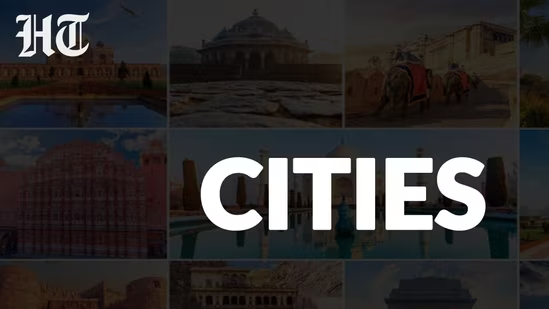MUMBAI: A Mumbai-based advocate has approached the National Human Rights Commission (NHRC) seeking urgent intervention to address the alarming rise in environmental and health hazards caused by carbide-based firecrackers and post-festival pollution across India.
In his complaint filed on Friday, advocate Hitendra Gandhi urged the commission to issue comprehensive safeguards and formulate national guidelines to protect the environment and all living beings from the recurring fallout of unregulated firecracker use during festivals such as Diwali, Christmas, Eid, and New Year.
“The same distressing consequences return year after year with polluted air, deafening noise, injured children and animals, and trees shrouded in soot,” Gandhi said in his representation, adding that the pattern points to a systemic failure in enforcement and environmental protection.
Through his plea, Gandhi has requested the NHRC to commission an independent study synthesising existing scientific and media reports on the impact of firecrackers, and to issue advisories and guidelines to both central and state authorities. The goal, he said, is to “preserve the sanctity of festivals while safeguarding citizens’ right to life, health, dignity, and a clean, safe environment.”
Citing scientific studies, the complaint highlights that the damage extends far beyond air quality. “The metal residue from crackers settles on soil, trees, and water bodies. Leaf-soiling and canopy damage are common in heavily polluted localities, while continuous chemical deposition impedes plant respiration and increases long-term urban tree stress,” the plea noted.
Choking after celebrations
Advocate Gandhi also pointed to how air quality in cities like Mumbai and Pune deteriorated sharply from “moderate” to “poor” or “very poor” within hours on the night of Diwali. Hospitals also reported spikes in cases of asthma and chronic obstructive pulmonary disease (COPD) during the period, he said.
Marine litter and debris from firecrackers have been found along shorelines and tree bases, while the cumulative environmental impact continues to build year after year. “These tragedies repeat themselves across India, exposing a structural failure in enforcement and the absence of coordinated institutional will to prevent avoidable harm,” Gandhi remarked.
Evidence from government and scientific studies
The complaint draws upon evidence from Central Pollution Control Board (CPCB) monitoring and several peer-reviewed studies, which show that festive firecracker use significantly increases concentrations of fine particulate matter and toxic metal aerosols, posing clear risks to public health.
Even short-term exposure, the studies warn, can have long-term consequences for respiratory and cardiovascular health. The plea argues that such toxic emissions and excessive noise violate the fundamental right to life and health under Article 21 of the Constitution, disproportionately affecting vulnerable citizens, including children, the elderly, pregnant women, and those with chronic illnesses.
“Animals and urban vegetation are silent victims,” the representation stated. “Their distress and damage undermine ecological stability, while yearly accumulation of toxic residues and heavy metals adds an environmental debt to future generations.”
Despite the Supreme Court’s earlier directive restricting the use of “green crackers”, the advocate noted that banned or uncertified fireworks continue to be openly sold and used, reflecting “gaps in implementation and accountability.”
“The right to celebrate cannot come at the cost of the right to breathe,” Gandhi concluded, urging the commission to treat the issue as a matter of urgent national importance.
Images are for reference only.Images and contents gathered automatic from google or 3rd party sources.All rights on the images and contents are with their legal original owners.

